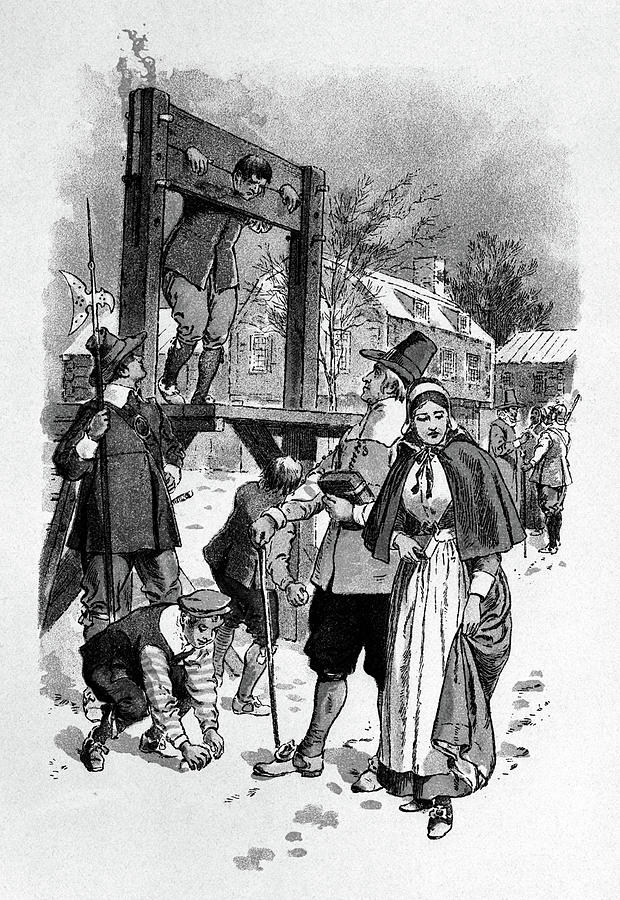Puritans in New England
The Puritans - No Compromise in God's Work
Puritans were English Protestants who wished to reform and purify the Church of England of what they considered to be unacceptable residues of Roman Catholicism. They believed that the Church of England was a true church, though in need of major reforms. Puritans opposed many of the traditions of the Church of England, including use of the Book of Common Prayer, the use of clergy vestments during services, the use of the sign of the cross at baptism, and kneeling to receive communion, all of which they believed constituted popery.
Considered heretics and threats to the social order, Puritan laymen received savage punishments. In 1630, a man was sentenced to life imprisonment, had his property confiscated, his nose slit, an ear cut off, and his forehead branded “S.S.” as a “Sower of Sedition.” Forced to leave England in the 1620 safter being threatened with “extirpation from the earth” if they did not fall in line, as many as 20,000 Puritans emigrated to New England in America. from England to gain the liberty to worship God as they chose.
In America, they made their Congregational Church the state church. The Puritans, like their European forbears, enforced religious conformity in their colonies. Those who chose to come and live in their colonies had to abide by the same religious views and practices. Religious conformity was the only way to preserve their faith, keep the community pure and moral, protect the church from heresy and corruption, and maintain civil peace. Consequently, they did not tolerate different religious sects in their community.
The membership was composed, at least initially, of men and women who had undergone a conversion experience and could prove it to other members. Puritan leaders hoped that their example would lead England to institute a church modeled after the New England Way.
Criminal laws in the early New England colonies were based on the scriptures, especially the Old Testament. Church attendance was mandatory. Those that missed church regularly were subject to a fine. The sermon became a means of addressing town problems or concerns. Since the Puritans believed they were doing God’s work, harsh punishment was inflicted on those who were seen as straying from the faith. There were cases when individuals of differing faiths were hanged in Boston Common. Adulterers might have been forced to wear a scarlet “A” if they were lucky. At least two known adulterers were executed in Massachusetts Bay Colony. Public whippings were commonplace. Being locked into public stocks forced the humiliated guilty person to sit in the public square, while onlookers spat or laughed at them.
Puritan Punishment

Hover Box Element
Salem With Trials
The Salem Witch Trials in the late 1600s was, in many ways, the direct consequence of Puritan ministers like Cotton Mather and the English Puritan Joseph Glanvill who continuously warned of the presence of witches, demons, and ghosts. Failing to believe in them was no different than the “denial of the bodily resurrection, and the [supernatural] spirits,” Glanvill wrote.
